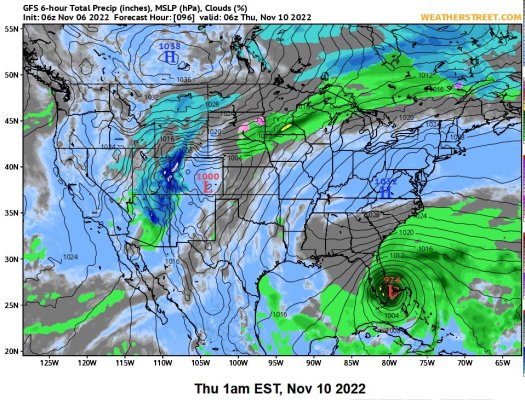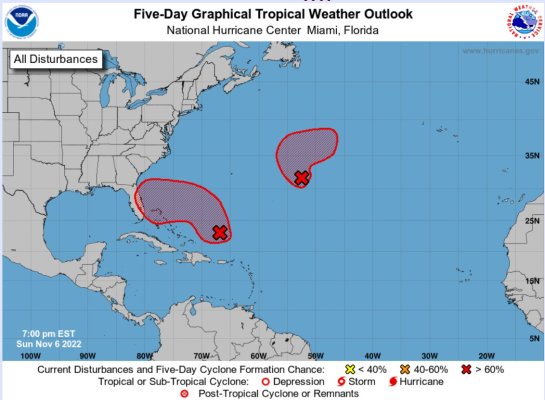The NWS hasn't come out with a new opinion on the possible storm, yet. However, the models are converging more on a SE FL hit. Please follow local news and you can also geek out here:
https://www.tropicaltidbits.com/storminfo/#98L
As for flooding, fires, tornadoes, hurricanes, etc... It is a complex topic that many people try to distill to a simple issue, and then inject it into political discussions.
We all live on this little blue-green ball covered by this thin coating of atmosphere that we are abusing, and we're all vulnerable to *something*. Nobody is safe. It has always been that way.
Climate change is one issue. But one needs to study historical weather events to get an appreciation for smaller cycles. Cycles that go on 2, 10, 30, 200, 10k and 100k year periods. There was good work being done on a lot of that until it became "all climate, all the time," and it is really a damn shame. There's little benefit to studying shorter cycles now because you get defunded and ignored by the world for having the audacity to think outside of The One Issue.
It would be in our best interest to understand the 10k to 100k cycle of glaciation. There still are theories, but it is somewhat a dead topic these days. We're not that far away from glacier times. The Great Lakes are ephemeral on the scale of time, a mere blip. They WILL go away or get iced over, no matter what we do with our carbon belching. After I learned of the enormity of time when I was studying astronomy (age 12), I would dig up sand in my back yard (2 miles away from Lake Michigan) and wonder what it was like a mere 15,000 years before, when my back yard was the shore of the nascent "Lake Chicago", with the ice sheet in view a few miles north. What an amazing sight that must have been! But poof! It will all be gone soon no matter what.
As for 30 year cycles: this is well known in hurricane studies. There is an approximate 30 to 50 year cycle of activity that waxes and wanes among the various basins. Florida was particularly vulnerable from the 20s through the 50s. And then things calmed down, until about 2000. We're currently probably at the end of this cycle, but who knows? Can't study it because the focus is instead on The One Thing.


